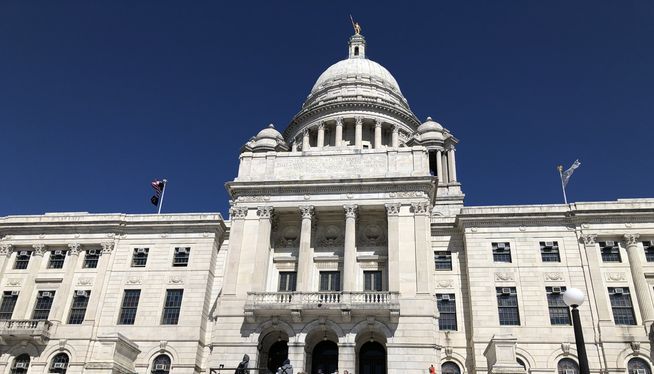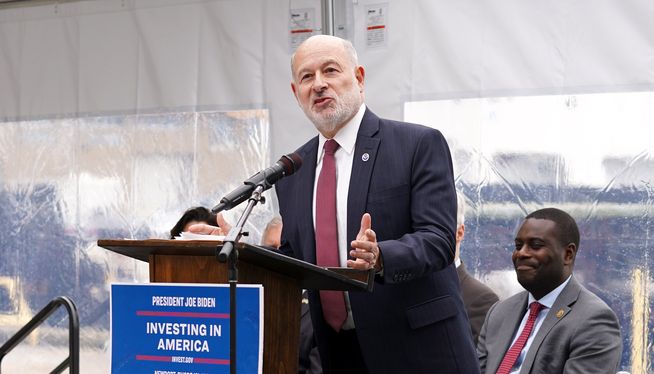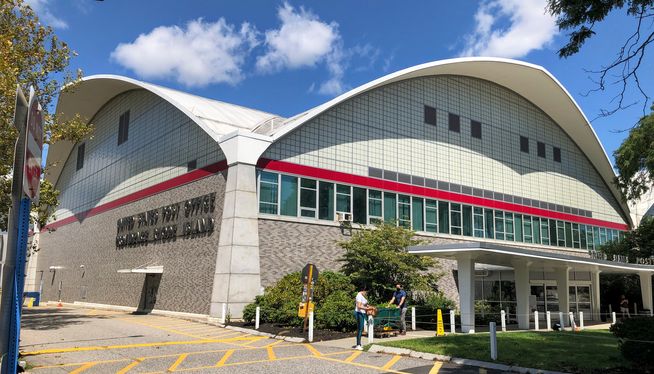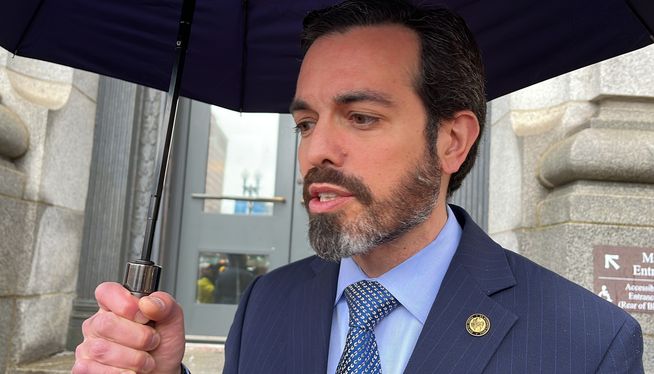
MATT O’BRIEN, Associated Press
SUSAN HAIGH, Associated Press
PROVIDENCE, R.I. (AP) — Just over 15,000 people make up Rhode Island House Speaker Nicholas Mattiello’s legislative district, most of them suburban neighbors of the Democrat in his hometown of Cranston. But a disproportionate number are inmates sent from out of town to the state’s main prison complex.
In Connecticut, thousands of inmates are also counted as constituents of state Sen. John Kissel, an Enfield Republican whose district spans seven towns, farmland and six rural prisons near the Massachusetts border.
Urban advocates say the practice is a form of “prison-based gerrymandering” that dilutes the representative power of their mostly Latino and black neighborhoods. Some lawmakers in the New England states are pushing for legislation that would instead count inmates as residents of wherever they lived before they were incarcerated.
“It’s about fairness, it’s about justice, it’s about equal distribution,” said Rhode Island state Rep. Anastasia Williams, a Providence Democrat who has introduced a bill to count inmates in their home districts.
There’s precedent for the move. It was the 2010 census that prompted Maryland to become the nation’s first state to decide to count inmates as residents of where they last lived, instead of the areas where they are imprisoned. Delaware, New York and California later adopted similar language.
Others, including Massachusetts, debated the idea but waited for guidance from the U.S. Census Bureau, which counts people wherever they live or sleep most of the time — which for an inmate is behind bars. The state’s Constitution requires using the federal census for determining legislative districts.
Connecticut and Rhode Island have tried before. In past sessions, Connecticut lawmakers from communities with prisons complained they could lose funding from state grants if their town’s population figures were compiled differently. This year’s bill, however, states that the new figures could not be used to change grant formulas.
Kissel said he’s willing to listen to advocates, but he noted that other communities are affected by transient populations, such as college students.
“What about all the kids at UConn? What about other areas of the state where people are counted in terms of voting districts but they may not necessarily be there year-round?” he asked.
All of Rhode Island’s state prisoners are incarcerated in a Cranston complex that housed 3,017 inmates as of Thursday. The adjacent facilities are split between Mattiello’s district and a neighboring one represented by Democratic Rep. David Bennett.
Bennett did not return calls for comment, but Mattiello said in a statement that counting inmates in Cranston makes sense because the city provides them public safety services.
“The names of the inmates change, but it’s the number of beds that count,” he said. “The population stays the same.”
Williams disagrees.
“I’m glad that they get these services, but the city of Cranston gets reimbursed by the state for any services for these inmates,” she said. “That’s really a moot argument as far as I’m concerned.”
Williams and state Sen. Harold Metts, a Providence Democrat who introduced a companion bill in the Senate, hope to resolve the debate ahead of the next decennial census in 2020 that will form the basis of legislative redistricting. But lawmakers will first need to persuade Mattiello, who holds power over what bills can move forward, to endorse a change that might work against his electoral interests.
Even though redistricting is not scheduled until 2021, Peter Wagner of the Massachusetts-based Prison Policy Initiative said it makes sense for states to take steps now to address the issue because it will take time to collect the home addresses of inmates.
“I believe this is an issue of accuracy and fairness,” said Connecticut state Sen. Eric Coleman, a Bloomfield Democrat whose district includes parts of Hartford. He said the current system distorts the numbers to the detriment of urban areas.













